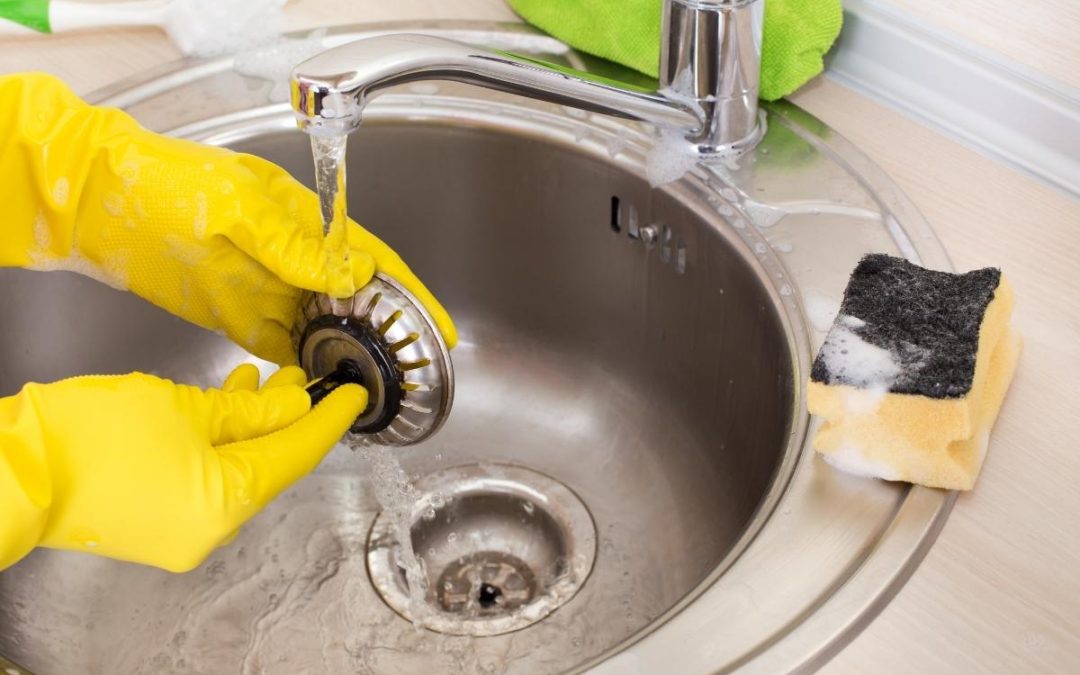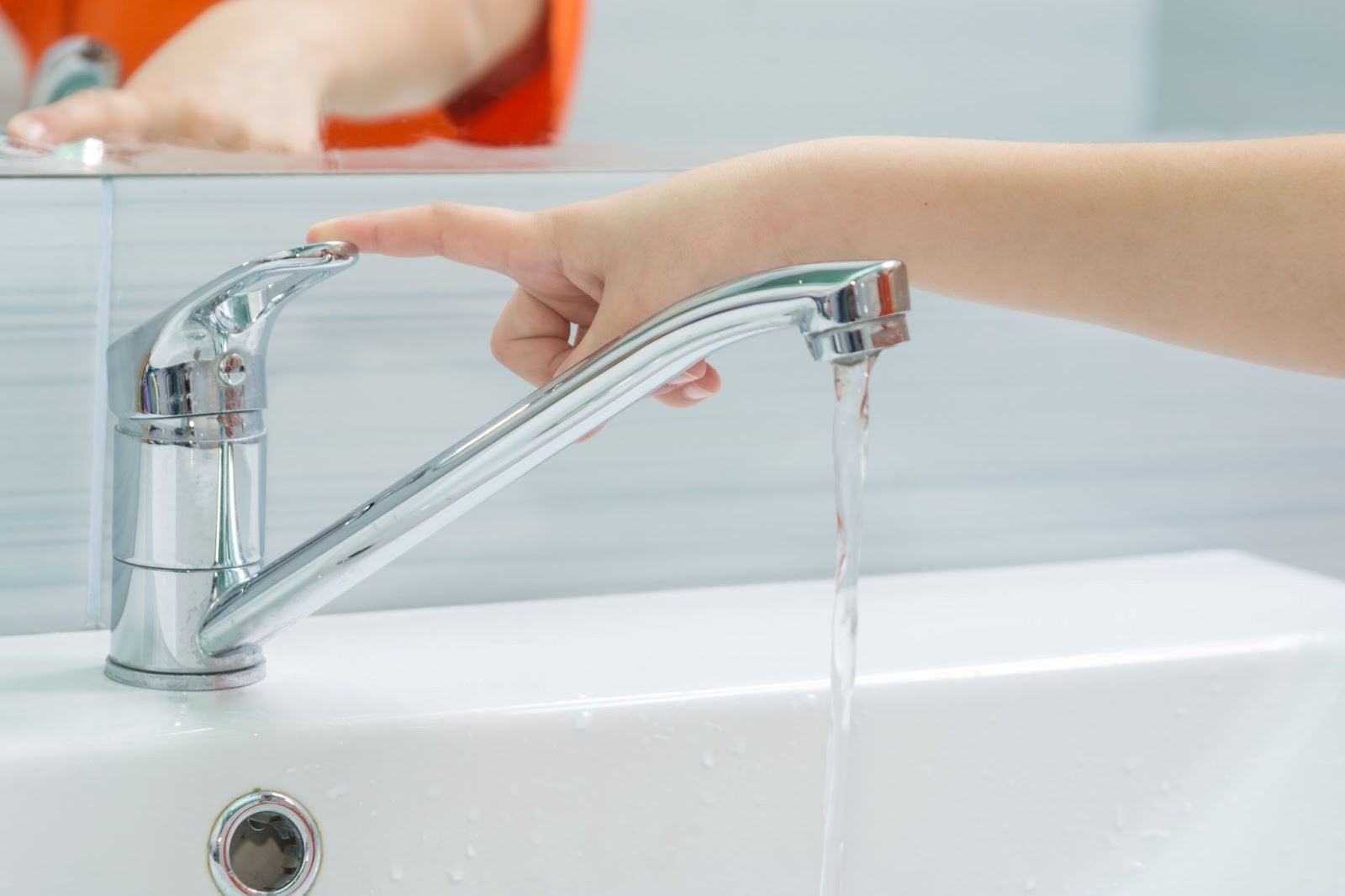Trusted Strategies For Addressing A Slow-Draining Sink
Trusted Strategies For Addressing A Slow-Draining Sink
Blog Article
Just how do you really feel about Solved! How to Fix a Slow Sink Drain?

Introduction
We've all existed: You're brushing your teeth or washing your hands, and you notice the water merging in the sink. Rather than rapidly swirling down the drain, it remains, transforming your once-refreshing morning routine into a small swamp scene. A slow-draining sink isn't simply aggravating; it's frequently an indicator of larger plumbing concerns hiding underneath the surface. Fortunately is that the majority of slow-draining sinks can be taken care of with a little know-how, a few standard devices, and some perseverance. Prepared to tackle this job head-on? Let's roll up our sleeves and dive right in.
Understanding the Root Causes Of a Slow-Draining Sink
Before you start poking around in your pipes, it assists to know what may be causing the slowdown. Comprehending the root cause makes it less complicated to select the best fix.
Typical Wrongdoers Behind Slow Drain
So, what's clogging points up? Normally, it's a mix of day-to-day particles-- assume hair, soap scum, toothpaste deposit, and remaining food bits. With time, these little bits gather and cling to the pipe walls, gradually narrowing the passage and making it harder for water to travel through. Sometimes, natural resource from difficult water can likewise add to the substance, creating the ideal storm for persistent clogs.
When is it Time to Act?
If you observe the water draining slower than typical, it's an excellent idea to step in earlier instead of later. Waiting also long could result in complete blockages, unpleasant odors, or even pipeline damage. If the water takes greater than a couple of seconds to clear out after switching off the tap, consider it a red flag and get ready to place on your do it yourself hat.
Devices and Materials You'll Require
The right tools make all the difference. Thankfully, you won't need a completely equipped plumber's van to get the job done.
Crucial Devices for Do It Yourself Services
A plunger is your go-to beginning point. A small, sink-sized bettor creates suction that can remove small clogs. For even more persistent blockages, a drainpipe snake (occasionally called a plumbing professional's auger) works wonders. A set of gloves, a flashlight, and possibly a set of protective safety glasses are also helpful.
Recommended Cleaning Solutions
Moderate recipe soap and warm water can assist break down greasy build-up. A mixture of cooking soda and vinegar is a reliable natural remedy, and enzymatic cleaners provide an even more eco-friendly technique. Maintain chemical drain cleaners as a last option, as they can be extreme on your pipelines.
Safety First: Preventative Measures and Preparations
Before you launch into unclogging mode, think about safety and security. You're managing potentially filthy water and particles, so slip on a set of gloves. If you're using chemical cleansers, make sure the room is well-ventilated and follow the guidelines on the tag.
Safety Equipment and Office Arrangement
Lay down some old towels or rags around the sink area to catch splashes. Clear away any items that may enter your means, like soap dispensers or toothbrush owners. Ensure you have good illumination-- grab a flashlight if needed.
Step-by-Step Guide to Dealing With a Slow-Draining Sink
Currently, allow's get into the nitty-gritty. This detailed process will certainly lead you via straightforward methods to restore your sink's drain.
Step 1: Eliminate and Clean the Stopper
Typically, the stopper (that little plug you push down to block water) is the first culprit. Remove it meticulously and clean off any type of hair or substance caught around its base. Wash it completely before putting it back in place.
Step 2: Utilize a Plunger to Remove Particles
Got that bettor prepared? Position it over the drain and provide it a few firm pumps. The idea is to develop suction that can loosen any kind of blockage. If you see little bits of particles drifting up, you get on the ideal track.
Action 3: Try a Drain Serpent or Wire Wall Mount
If the plunger does not suffice, it's time to highlight the drain serpent. Carefully feed it into the drainpipe and spin as you go. You might really feel some resistance-- that's likely the blockage. Maintain twisting and pulling until you get rid of the blockage. If you do not have a drainpipe snake, a straightened out wire wall mount can work in a pinch.
Tip 4: Use a Do It Yourself Drain Cleaner
An all-natural cleaner made from baking soda and vinegar can break down recurring crud. Pour half a cup of cooking soft drink into the drain, complied with by half a cup of vinegar. Let it fizz for about 15 mins, then flush with warm water. This chemical reaction usually does marvels for small obstructions.
Tip 5: Reconstruct and Examine the Sink
Put everything back together and run the tap. Does the water currently swirl away at a decent rate? If yes, provide on your own a pat on the back. If not, don't despair-- there are still a couple of more tricks up your sleeve.
Alternative Methods for Stubborn Clogs
Not all clogs are produced equal. If your sink still refuses to cooperate, take into consideration these alternate services.
Sodium Bicarbonate and Vinegar Approach
We already touched on this, yet it's worth keeping in mind once again. This gentle, eco-friendly method is much safer than chemical cleansers and commonly fairly effective.
Enzymatic Drain Cleansers
Enzyme-based cleansers make use of all-natural microorganisms to absorb raw material. They're an excellent option if you're aiming to stay clear of severe chemicals. Simply keep in mind, they might take a bit longer to function their magic.
Chemical Drainpipe Cleaning Company: Pros and Cons
Chemical cleansers can blow up via challenging clogs quick, but they're not without downsides. They can produce heat and fumes, damage pipes if made use of excessively, and present environmental risks. Use them moderately, and constantly adhere to the directions carefully.
Safety Nets to Keep Your Sink Flowing
Avoidance is the best cure. By embracing a few straightforward habits, you can keep your sink from slowing down in the first place.
Regular Cleaning Routines
Clean down the sink container and component location routinely. Remove hair or food fragments prior to they have a possibility to wash down the drain.
Staying Clear Of Unsafe Compounds Away
Reconsider before unloading coffee premises, grease, or coarse vegetable scraps down the sink. These wrongdoers hold on to pipe wall surfaces, producing clogs with time.
Routine Upkeep Checks
Schedule a quick month-to-month examination. Run hot water via the sink for a couple of mins, taking note of the circulation. If it appears slow, act fast prior to it comes to be a full-on obstruction.
When to Call a Professional Plumber
Sometimes, despite just how tough you try, that obstruct simply will not move. That's when it's time to generate the pros.
Signs That Indicate an Extra Severe Concern
If your sink drains pipes gradually regardless of multiple efforts, or if you see water supporting in other fixtures (like your shower or toilet), you may have a much more serious pipes issue prowling much deeper in the system.
Balancing Do It Yourself Efforts with Professional Aid
While DIY can save you cash and offer a sense of success, there's no pity in calling an expert. An expert plumber can examine your whole plumbing configuration, ensuring there's no underlying damage or lasting trouble that could cost you much more in the future.
Contrasting Prices and Long-Term Solutions
Before making a decision, consider the big picture. A cheap, quick fix might resolve the problem momentarily, however purchasing a more permanent solution could conserve you cash and anxiety in the long run.
Evaluating the Expenses of DIY vs. Expert Solutions
DIY repairs often set you back little bit greater than the cost of a plunger or a bottle of cooking soda. Specialist services, on the other hand, come with a price however might stop repeated problems and pricey fixings later.
Buying Top Quality Fixtures and Upgrades
If your sink's layout adds to frequent clogs, it might be worth updating to higher-quality components or altering the plumbing layout. Consider this an investment in your house's capability and convenience.
Final thought
A slow-draining sink can seem like a minor inflammation, but it's often a sign that your plumbing requires a little tender loving care. By recognizing the origin, utilizing the right devices and methods, and dedicating to basic safety nets, you can maintain your sink flowing easily. And when all else fails, never ever be reluctant to employ a specialist-- your home's pipes is worth the investment in treatment and upkeep.
Three Common Ways to Fix a Slow Drain
Baking Soda Method
Boil a full pot of water. Measure out cup of baking soda and pour it down the drain. Then take cup of the magical cleansing substance known as white vinegar and drop that down there too. Allow the mixture to fizz in the drain for five minutes as the vinegar and baking soda combine. Now dump in that whole pot of boiling water. This combination of cleaning substances should clear out anything that is causing your sink to drain slowly. If it doesn t...
Zip-It
If the baking soda method doesn t clear out your drain, it may be because a significant amount of hair and/or other debris has collected there and you need to remove it. Purchase a Zip-It tool at any home improvement or hardware store and insert it into your drain. It will catch any collected hair or debris that s blocking the flow of water. Pull it out. If it s got a big clump of hair, etc. on the end, you ve probably got your culprit.
Drain Cleaner
If these methods don t work, there is the standard drain cleaner that you can also buy in a hardware store or even your local grocery store. It s better if you can use a household solution, but these drain cleaners often work in a pinch. They re very simple to use. You generally just dump them in your drain and wait. If even this method is not effective, it may be time to call the plumber.
https://www.mrrooter.com/oneida/about-us/blog/2017/july/three-common-ways-to-fix-a-slow-drain/

As a serious person who reads on , I think sharing that post was essential. Sharing is nice. Helping others is fun. Thank you so much for going through it.
Get A Free Quote Report this page